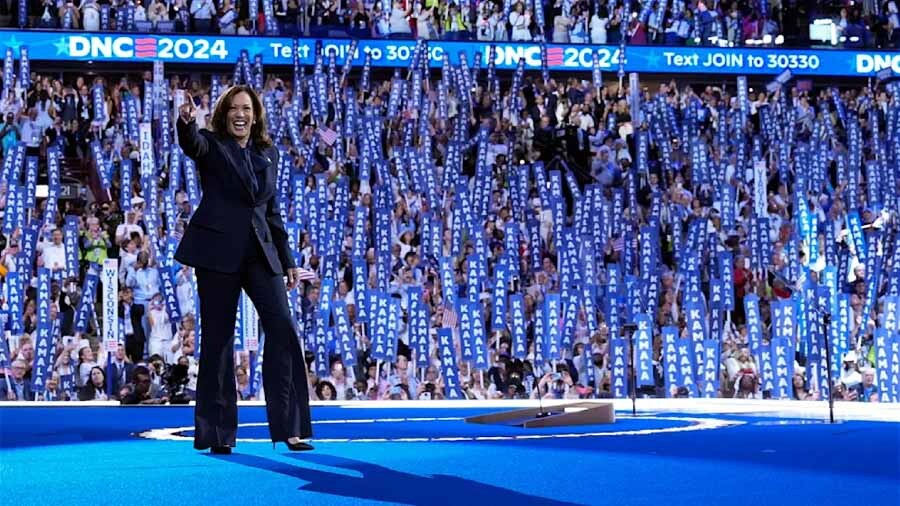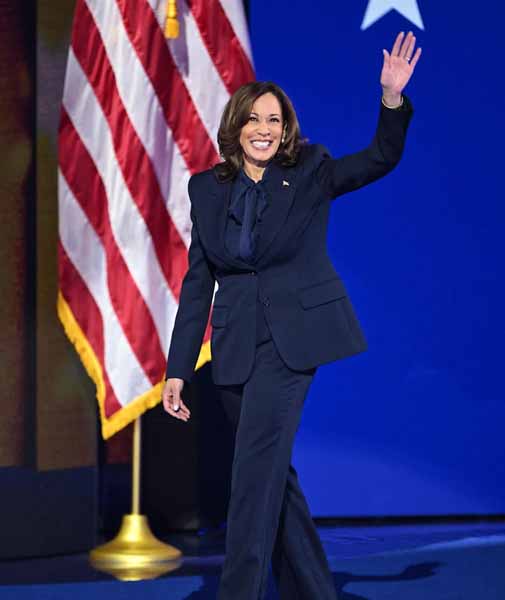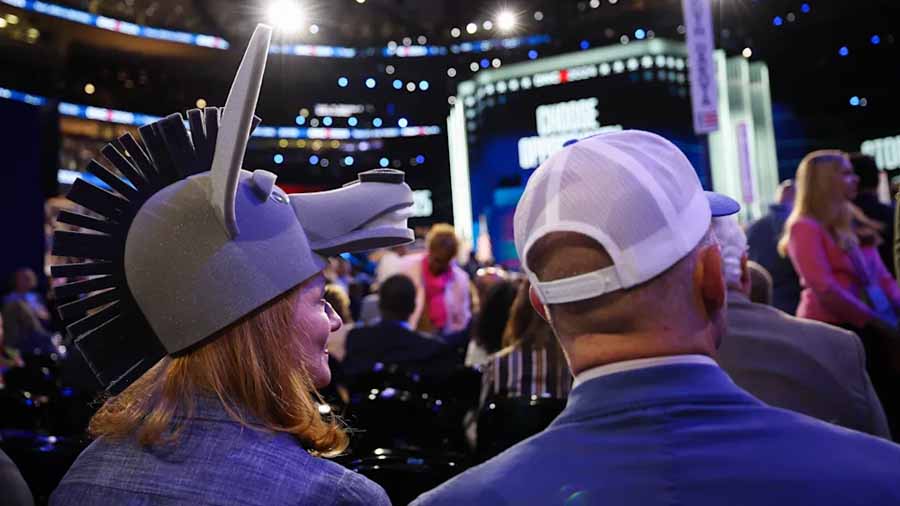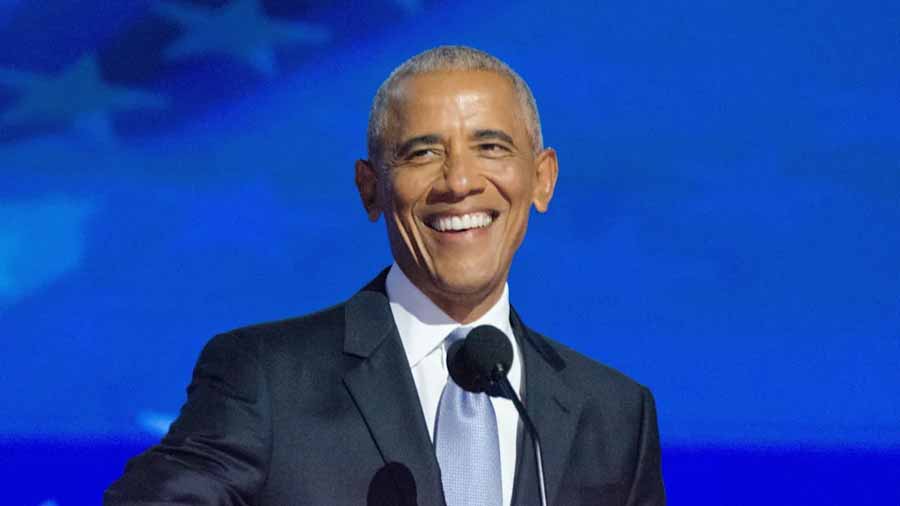
- Kamala Harris is running as the Democratic candidate in the 47th presidential election.
DLNews politics:
The Democratic Party is one of the oldest political organizations in the world, with a history spanning over 200 years. Known for its progressive and liberal values, it stands as one of the two major political parties in the United States, alongside the Republican Party. The Democratic Party primarily draws its support from urban areas and advocates for a government that actively regulates the economy and ensures social justice.

Kamala Harris
History and Founding of the Democratic Party
The Democratic Party is rooted in the Democratic-Republican Party, founded by Thomas Jefferson in 1792. This early party was established to oppose the centralizing policies of the Federalists. On January 8, 1828, Andrew Jackson officially founded the modern Democratic Party, making it the world’s oldest active political party.

Over the years, the donkey has become the unofficial symbol of the Democrats.
Initially, the Democratic Party's goals differed from those it holds today. Andrew Jackson, the first Democratic president, promoted the interests of the "common man" but supported policies such as slavery and the forced relocation of Indigenous peoples. Throughout the 19th century, divisions within the party emerged, particularly around the issues of civil rights and racial segregation.
Transformation to a Progressive Party
The Democratic Party’s transformation toward more progressive policies began in the early 20th century. By the mid-1900s, the party had solidified its shift to social liberalism, advocating for civil rights, economic reforms, and more robust government intervention to address social inequalities. The landmark moment came during the presidency of Lyndon B. Johnson, who signed the Civil Rights Act of 1964, ending legal racial segregation, and the Voting Rights Act of 1965, which expanded voting rights for African Americans.
The modern Democratic Party focuses on social justice, advocating for policies that promote equality, protect civil rights, and ensure access to essential services.
Values and Policies of the Democratic Party
Today, the Democratic Party champions progressive policies emphasizing equality, social welfare, and environmental sustainability. Some of the fundamental values include:
- Economic Equality: Democrats advocate for higher taxes on wealthy individuals and corporations to fund social programs, education, and infrastructure improvements.
- Healthcare: The party supports accessible healthcare for all Americans and seeks to expand programs like Medicare and Medicaid.
Civil Rights: The Democratic Party is committed to protecting civil rights, including gender equality, racial justice, and LGBTQ+ rights. It also champions women’s reproductive rights, including the right to abortion.
- Environmental Protection: Democrats prioritize environmental sustainability and climate action, supporting initiatives to reduce carbon emissions and promote renewable energy sources.
- Gun Control: The party advocates for stricter gun control measures to reduce gun violence, including comprehensive background checks and restrictions on certain types of firearms.
- Criminal Justice Reform: Democrats typically support reforming the criminal justice system to address racial disparities and reduce mass incarceration.
The Democratic Party’s Symbol: The Donkey
The donkey has long been the symbol of the Democratic Party. This association dates back to Andrew Jackson’s 1828 presidential campaign when his opponents derisively called him a "jackass" (a slang term for a donkey). Rather than rejecting the insult, Jackson embraced the image, which has since been a lasting symbol of the party. Blue has also become synonymous with the Democratic Party. However, this association only solidified during the 2000 presidential election when media outlets used color-coded maps to represent party support.
Democratic Representation in Congress
The Democratic Party has consistently maintained a strong presence in the U.S. Congress. In the 118th Congress, Democrats held 213 seats in the House of Representatives, compared to 222 held by Republicans. In the Senate, the Democrats had 48 seats, with three independent senators who generally caucused with the Democrats. In cases of a tie, Vice President Kamala Harris held the deciding vote, giving the Democrats an effective majority in the Senate.

Barack Obama was the first black president of the United States - he is a Democrat.
Democratic Presidents of the United States
Over its long history, the Democratic Party has produced 17 U.S. presidents. These leaders have played pivotal roles in shaping American history and the modern political landscape. Here is a list of all the Democratic presidents:
Andrew Jackson (1829–1837): The first Democratic president and founder of the modern party.
Martin Van Buren (1837–1841): Continued Jackson’s policies and opposed the expansion of slavery.
James K. Polk (1845–1849): Expanded U.S. territory through the Mexican-American War.
Franklin Pierce (1853–1857): Advocated for the Kansas-Nebraska Act, which reignited the slavery debate.
James Buchanan (1857–1861): His inaction on secession is often cited as a failure to prevent the Civil War.
Andrew Johnson (1865–1869): He became president after Lincoln’s assassination and clashed with Congress during Reconstruction.
Grover Cleveland (1885–1889, 1893–1897): The only president to serve two non-consecutive terms.
Woodrow Wilson (1913–1921): Led the U.S. through World War I and established the League of Nations.
Franklin D. Roosevelt (1933–1945): The architect of the New Deal, Roosevelt led the country through the Great Depression and World War II.
Harry S. Truman (1945–1953): Oversaw the end of World War II and implemented the Marshall Plan to rebuild Europe.
John F. Kennedy (1961–1963): Advanced civil rights and led during the Cuban Missile Crisis before his assassination.
Lyndon B. Johnson (1963–1969): Signed the Civil Rights Act and Voting Rights Act and escalated the Vietnam War.
Jimmy Carter (1977–1981): Advocated for human rights and dealt with the Iran Hostage Crisis.
Bill Clinton (1993–2001): Oversaw a period of economic growth but faced impeachment.
Barack Obama (2009–2017): The first African-American president, he passed the Affordable Care Act and led the country through the Great Recession.
Joe Biden (2021–Present): Focused on addressing the COVID-19 pandemic, climate change, and racial justice.
The Democratic Party and the 2024 U.S. Elections
As the United States prepares for the 2024 presidential election, the Democratic Party will again be a significant contender. Kamala Harris, the current vice president, is expected to be the Democratic nominee for president. She is facing Donald Trump, the former Republican president, in what promises to be a closely contested race.
A third of the Senate seats will also be up for grabs in the upcoming elections, which could shift the balance of power in Congress. Democrats are focused on maintaining their majority and pushing forward their progressive agenda, which includes expanding healthcare access, addressing climate change, and promoting social justice.
Conclusion
The Democratic Party has evolved from its early days as a party of rural interests to become a champion of progressive policies and social justice. With a strong history of leadership and a focus on equality and reform, the Democratic Party continues to play a vital role in shaping the future of the United States. As it heads into the 2024 elections, the party remains committed to addressing the nation's challenges and advocating for the rights and well-being of all Americans.

Desert Local News is an invitation-only, members-based publication built on fact-checked, non-biased journalism.
All articles are publicly visible and free to read, but participation is reserved for members—comments and discussion require an invitation to join.
We cover local, state, and world news with clarity and context, free from political agendas, outrage, or misinformation.
Comments